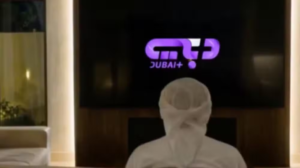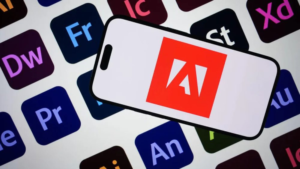AI Cannot Make Cinema, Says Director Richard Linklater
“No algorithm can tell a story that connects to humanity,” says the Oscar-nominated filmmaker
Can great art exist without human genius — and all its imperfections?
For acclaimed filmmaker Richard Linklater, the answer is a resounding no.
In a new interview with AFP, the Boyhood and Before Sunrise director said artificial intelligence may be changing the tools of filmmaking, but it can never replicate the creative soul that defines cinema.
“AI is not going to make a film,” Linklater stated firmly.
“Storytelling, narrative, characters — something that connects to humanity — that’s a whole ’nother thing.”
Exploring the essence of genius in ‘Nouvelle Vague’ and ‘Blue Moon’
Linklater’s latest projects — Nouvelle Vague (set to stream on Netflix from November 14) and Blue Moon (currently in cinemas) — both explore the brilliance and fragility of human creativity.
Nouvelle Vague dramatizes the making of Jean-Luc Godard’s revolutionary 1960 film Breathless, capturing the chaotic genius that redefined French cinema.
“He’s a little full of himself, but he’s a genius,” Linklater said of Godard. “A revolution is going on, but he’s the only one who knows it.”
Meanwhile, Blue Moon tells a far more tragic story — that of Broadway lyricist Lorenz Hart, whose partnership with composer Richard Rodgers produced timeless hits like My Funny Valentine and The Lady is a Tramp.
Set during the twilight of Hart’s career, the film depicts the decline of a once-brilliant artist consumed by alcoholism as the world moves on without him.
“It’s become very clear that the times are leaving him behind,” Linklater reflected. “They’re leaving behind his genius.”
‘No algorithm is gonna do that’
Asked about the future of AI in Hollywood, Linklater acknowledged that technology has always shaped filmmaking — from lightweight cameras in the French New Wave era to today’s digital workflows.
However, he drew a sharp line between tools and talent.
“You’re gonna see some cool stuff,” he said. “But the hardest thing to do is still to tell a compelling story that people want to see and be engaged with. That’s acting, that’s structure, that’s emotion — no algorithm is gonna do that. No prompt is gonna do that.”
For the director, AI lacks the intuition and consciousness necessary for real storytelling. “It’s just one more tool,” he added, “but not a revolutionary one.”
A long game: Linklater’s next 20-year project
Linklater’s own career remains proof of his commitment to authenticity. His next film, Merrily We Roll Again, based on Stephen Sondheim’s musical, will be filmed over 20 years, allowing actors to truly age backward on screen — a more ambitious version of his 12-year project, Boyhood.
“It’s not a visual trick,” he said. “I want the actors to actually be that much older and wiser. That’s authenticity — not technology.”
For Linklater, cinema is more than pixels, prompts, or processing power. It’s the human touch, with all its flaws and insight, that makes movies matter.
“That’s my hanging-on-to-humanity approach,” he said with a smile.













